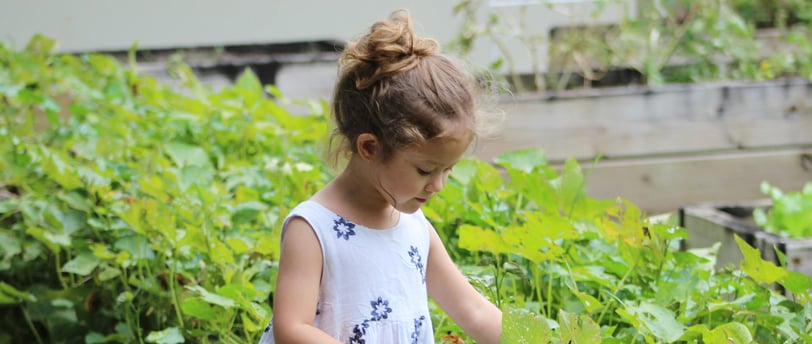The Basics of Gardening: How to Get Started and What You'll Need
2/18/20243 min read


Introduction:
Gardening is more than just a hobby; it's a deeply rewarding activity that offers numerous benefits for both the mind and the soul. From beautifying your home to enjoying the therapeutic effects of nature, gardening has something to offer everyone. In this comprehensive guide, we will delve into the basics of gardening, providing novice gardeners with essential tips and insights to kick-start their journey and nurture their green thumb.
Assess Your Garden and Determine Your Planting Goals:
The first step in gardening is to assess your garden space and determine what you want to plant. Whether it's flowers, trees, herbs, or a combination of all three, understanding your planting goals will guide your gardening efforts. Take into account factors such as sunlight exposure, soil quality, and watering needs when planning your garden layout. Consider planting native species that are well-suited to your local climate and environmental conditions.
Gather Essential Gardening Tools:
Just like any other hobby, gardening requires the right tools to get the job done efficiently. While many basic gardening tools have remained unchanged for centuries, there are also modern inventions that can make your gardening experience easier and more enjoyable. Essential tools include hand trowels, pruning shears, watering cans or hoses, garden forks or cultivators, and gloves for hand protection. Invest in quality tools that will last and make your gardening tasks more manageable.
Plan Your Gardening Schedule:
Effective time management is crucial for successful gardening. Plan your gardening activities around the time of day when you have the most energy and when the weather is most conducive to outdoor work. Many gardeners prefer to work in the morning or evening when temperatures are cooler and the sun is less intense. Consider creating a gardening schedule or calendar to keep track of tasks such as planting, watering, pruning, and harvesting.
Establish Storage Space for Tools and Seeds:
To stay organized and efficient, create a designated storage space for your gardening tools and seeds. This could be a shed, garage, or even a corner of your garden where tools can be easily accessed when needed. Invest in storage solutions such as tool racks, shelving units, or storage bins to keep your gardening supplies tidy and protected from the elements.
Embrace Failure as a Learning Opportunity:
Gardening is a journey filled with ups and downs, and it's important to embrace failure as a natural part of the process. Not every plant will thrive, and mistakes will inevitably happen. Use these failures as learning opportunities to improve your gardening skills and knowledge. Experiment with different planting techniques, soil amendments, and plant varieties to discover what works best in your garden.
Commit to Your Garden:
Gardening is a commitment that requires time, effort, and patience. It's not a one-day activity but rather an ongoing journey of nurturing and growth. Make a commitment to your garden by dedicating regular time to care for it, whether it's watering, pruning, weeding, or simply observing and enjoying the beauty of nature unfolding.
Practice Patience:
Patience is a virtue in gardening, as plants take time to grow and flourish. Resist the urge to rush the process or force nature to bend to your will. Instead, practice patience and allow your garden to evolve at its own pace. Trust in the natural rhythms of growth and transformation, knowing that your efforts will be rewarded in due time.
Provide Regular Care for Your Garden:
Regular care is essential for maintaining a healthy and thriving garden. This includes tasks such as watering, pruning, trimming, fertilizing, and pest control. Pay attention to the specific needs of each plant and provide the care and attention they require to thrive. Regular maintenance will help prevent problems such as disease, pest infestations, and nutrient deficiencies.
Celebrate Milestones and Achievements:
Gardening is a journey filled with small victories and milestones worth celebrating. From the joy of seeing a seed sprout to the satisfaction of harvesting your first crop, take time to celebrate the achievements of your garden. Share your successes with friends and family, and take pride in the hard work and dedication you've invested in nurturing your garden.
Embrace the Journey of Growth and Learning:
As you progress from a novice to a seasoned gardener, remember that the journey is just as important as the destination. Embrace the process of growth and learning, and continue to explore new techniques, plants, and gardening methods. Gardening is a lifelong pursuit that offers endless opportunities for creativity, discovery, and connection with the natural world. Enjoy the ride and savor every moment of your gardening journey.
Conclusion:
Gardening is a hobby that offers countless rewards for those willing to put in the time and effort. By following the tips and insights outlined in this guide, novice gardeners can embark on their gardening journey with confidence and enthusiasm. From planning and planting to caring for and celebrating your garden, may your gardening experience be filled with beauty, joy, and growth. Happy gardening!
